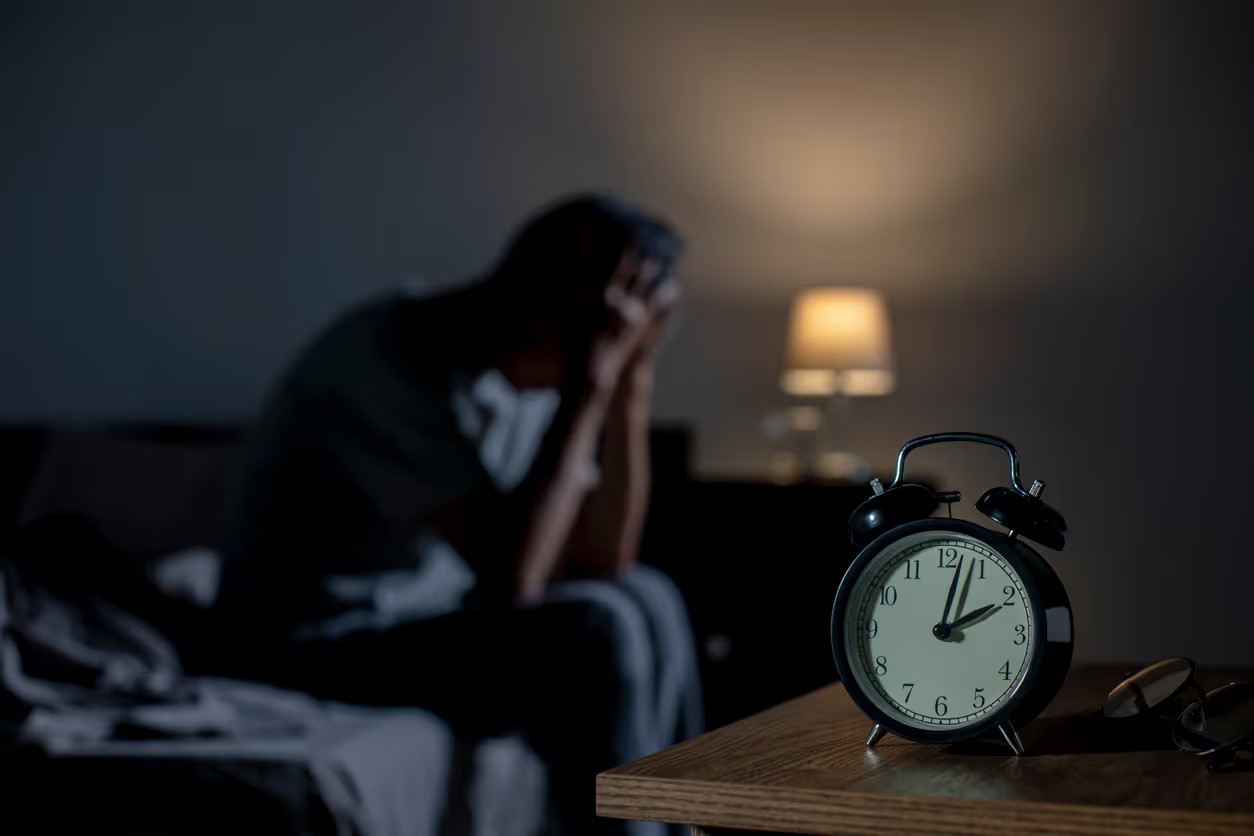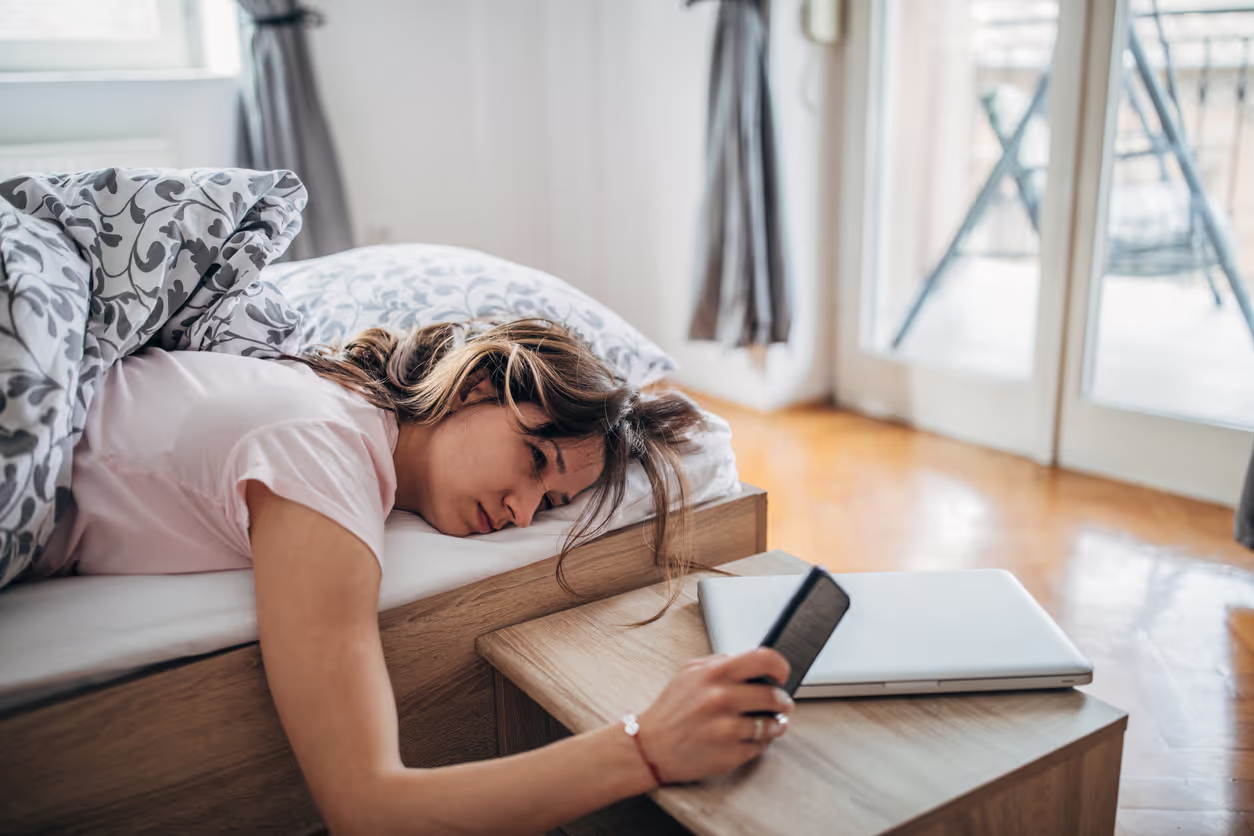Simple sleep hygiene habits that can change your life

Easy, science-backed routines to help you sleep better—starting tonight
If you find yourself struggling to fall asleep, waking up throughout the night, or feeling groggy in the morning, your sleep hygiene may be the missing piece. Good sleep hygiene isn’t complicated—it’s a set of simple habits that signal to your brain and body that it’s time to rest.
If you want to know more about your sleep health, try taking our comprehensive free Sleep Assessment and in only a few minutes of answering questions you will receive a free Sleep Health Report.
We have successfully treated insomnia and other sleep disorders for more than 40+ years. Our protocols are proprietary—a direct result of practitioner feedback from thousands of client sessions and training cohorts—meaning more precise, individualized, and trusted outcomes than off-the-shelf CBT‑I. Find out how we can help you achieve lasting improvements to your sleep health, general health and wellbeing. Start your journey here.
Whether you’re dealing with occasional insomnia or just want more energy during the day, these sleep hygiene habits can make a lasting difference.
1. Stick to a consistent sleep schedule
Your body loves rhythm. Going to bed and waking up at the same time every day—even on weekends—helps regulate your circadian rhythm, making it easier to fall asleep and wake up refreshed.
Tip: Set a fixed wake-up time first, then adjust your bedtime to allow for 7–9 hours of sleep.
2. Create a calm, sleep-friendly environment
Your bedroom should feel like a sanctuary for rest. Ideal sleep hygiene means removing anything that stimulates your brain or body at night:
- Keep the room dark (use blackout curtains or an eye mask)
- Maintain a cool temperature (around 15–19°C / 60–67°F)
- Use a white noise machine or earplugs to block disruptive sounds
- Remove screens, work, and clutter
3. Power down screens at least an hour before bed
Phones, tablets, and TVs emit blue light that suppresses melatonin, the hormone responsible for making you feel sleepy.
Try this instead: Read a book, take a warm shower, or listen to relaxing music.
4. Watch what you eat and drink
Caffeine, alcohol, and heavy meals too close to bedtime can disrupt sleep. Practising good sleep hygiene includes being mindful of what you consume:
- Avoid caffeine after 2 p.m.
- Keep alcohol moderate and early in the evening
- Finish eating at least 2–3 hours before bed
5. Wind down with a relaxing routine
Having a calming ritual before bed signals your body it’s time to sleep. This doesn’t need to be complicated—just consistent:
- Light stretching or gentle yoga
- Deep breathing or meditation
- Journaling or gratitude reflection
- Herbal tea (like chamomile or valerian root)
6. Use your bed for sleep (and intimacy) only
If you regularly scroll, work, or watch TV in bed, your brain may stop associating the bed with sleep. One of the core rules of sleep hygiene is to use your bed only for rest.
Bonus tip: If you can’t fall asleep within 20–30 minutes, get out of bed and do a quiet activity until you feel sleepy again.
7. Get natural light in the morning
Exposing yourself to morning sunlight helps regulate your sleep-wake cycle. Just 10–30 minutes of daylight early in the day can improve your sleep at night.
Final thoughts
You don’t need a prescription or a complicated routine to sleep better—just a few consistent sleep hygiene habits. By creating the right environment and following a healthy rhythm, you’re giving your body the signals it needs to fall asleep naturally and wake up restored.
Start small. Pick one or two of these habits tonight, and build from there. Better sleep starts with better habits—and that can truly change your life.
Frequently asked questions
What is sleep hygiene?
Sleep hygiene refers to healthy habits and environmental factors that support good sleep. These include consistent routines, screen limits, and creating a restful bedroom.
How long does it take to see results from better sleep hygiene?
Many people notice improvements within a few days, but it can take a week or two for your body to fully adjust. The key is consistency.
Can sleep hygiene help with insomnia?
Yes. Sleep hygiene is often the first step in treating insomnia and is a key component of Cognitive Behavioural Therapy for Insomnia (CBT-I).
Do I have to avoid screens completely at night?
Not necessarily. But powering down at least 60 minutes before bed gives your brain a better chance to wind down. If you must use a device, enable night mode or blue light filters.
Is waking up during the night a sign of poor sleep hygiene?
It can be. Disrupted sleep might be related to screen use, caffeine, stress, or an inconsistent schedule—all of which can be improved with better habits.
Book a time with one of our sleep specialists to get your sleep back on track.






